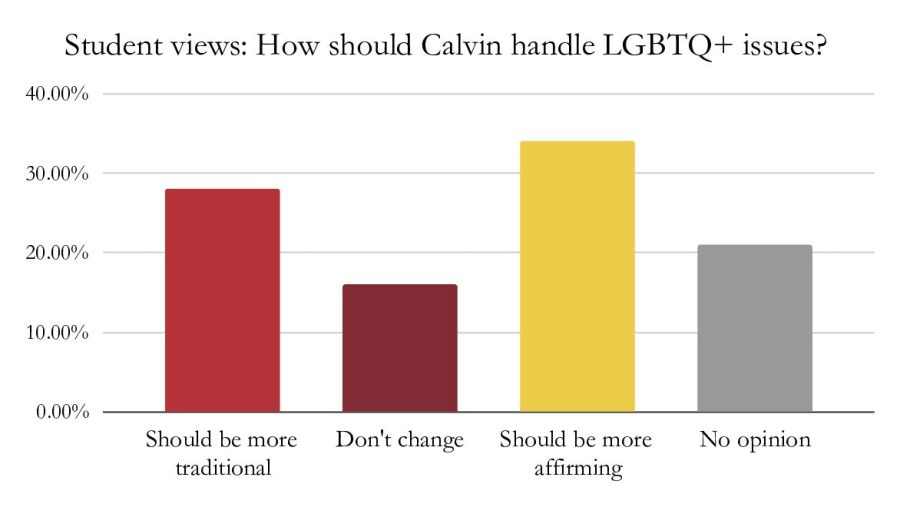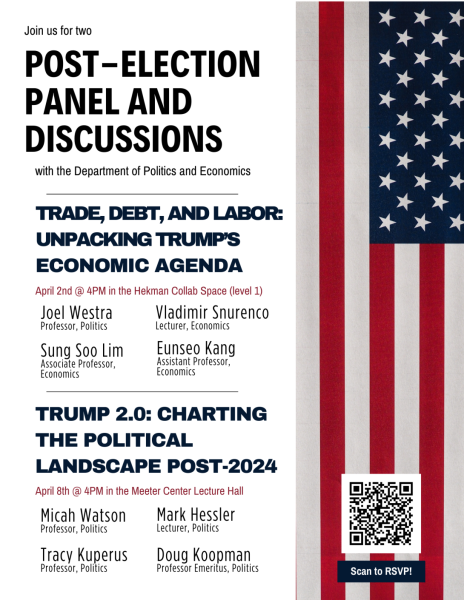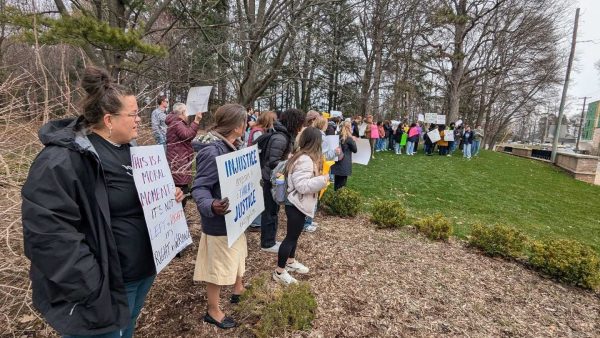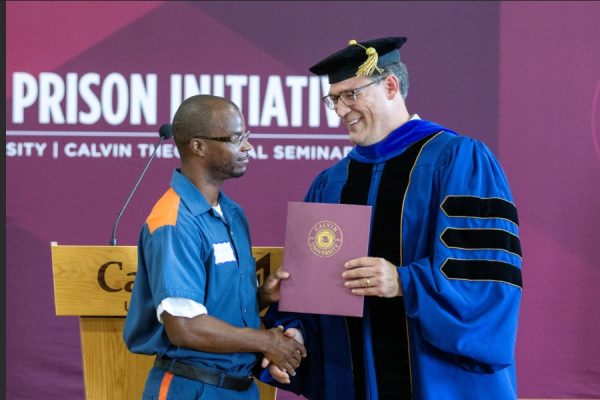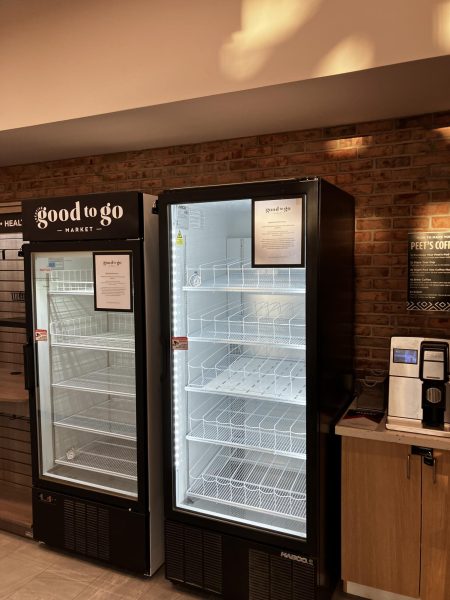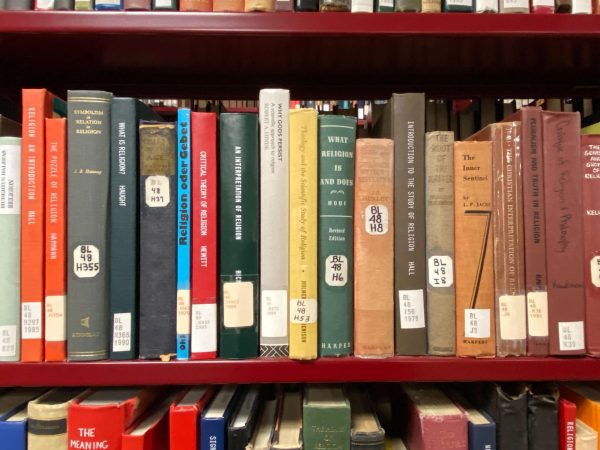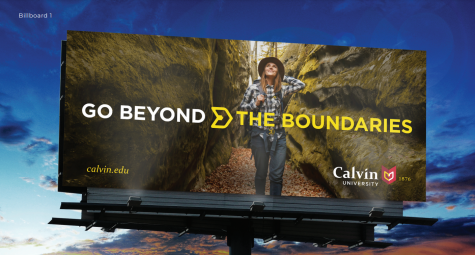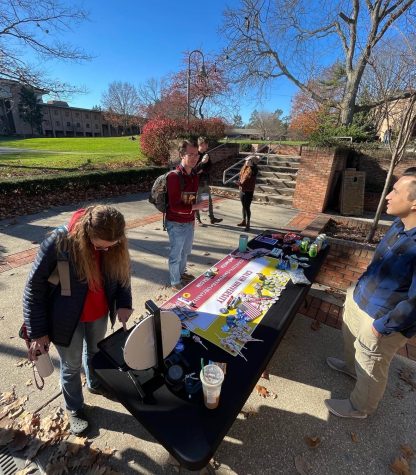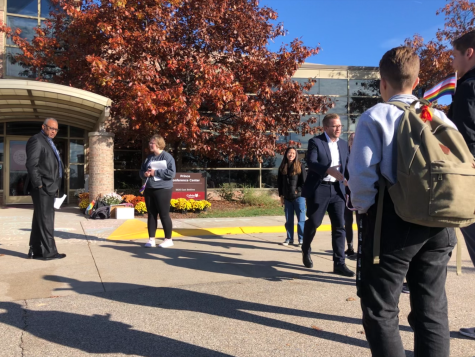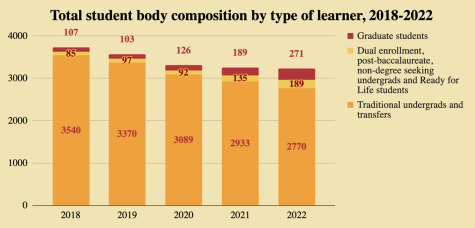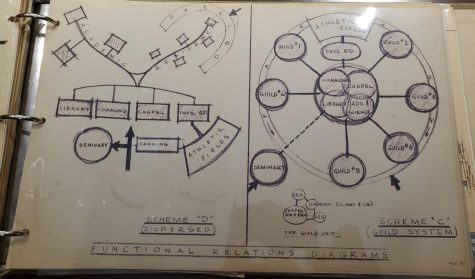Student Senate survey highlights points of difference and consensus
Calvin’s student body holds a range of views on how the university should respond to LGBTQ+ issues.
Student Senate’s annual survey this year highlighted points of division and agreement in the student body. Despite starkly different views on some issues, with divides along party lines as well as fields of study, students across campus and across the political spectrum told senators in focus groups that they want more transparent communication from administration and more healthy political dialogue on campus.
“One of our core values is to be connected to the student body,” Student Senate Vice President Theodore Perumal told Chimes. “It’d be kind of ridiculous to use that term without going out of our way to connect with that student body … so that’s why we do a survey every year.” In addition to guiding the projects that Student Senate chooses to pursue, the surveys give senators data “to tell faculty and the administration what students want,” according to Perumal.
Because the survey was only taken by a portion of the student body, albeit a fairly sizable portion (the survey gathered about 700 responses — a response rate of about 22%), the results can’t be assumed to perfectly represent the student body. But, compared to day 10 census data, the survey sample was fairly representative. Underclassmen were slightly overrepresented in the senate’s survey sample, as were women students. The proportion of religious groups in the sample were approximately representative. The survey samples tend to be biased toward engaged students and students that have a positive impression of Student Senate, according to Perumal.
Senate leadership presented results of the survey and focus groups to the Board of Trustees and Faculty Senate over the past two weeks. According to Student Body President Nain Miranda, his presentation to the board was the first time in history that a student presented a report on the student body to the board.
Miranda highlighted the diversity of the student body in that presentation. “There are many important things I hope the board took away from the presentation, but if I had to say one thing, I would say that the student body is highly diverse in thought and opinion and that this diversity of thought is a large part of what makes the Calvin education so great,” Miranda said.
The survey usually includes questions about the senate’s current projects, demographics and social issues at Calvin. Due to the events of the last year, the senate particularly “wanted to gauge students’ voices on LGBTQ+ topics,” Perumal told Chimes.
Investment preferences
The majority of respondents said they want Calvin to invest more in aspects of the student experience. About 39% said their first choice for increased investment was housing, student organizations and student activities, while another 15% said they preferred the university prioritize new projects and programs, such as building the Learners’ Common (formerly known as Commons Union) and football program.
About 21% of students reported that their first priority for increased investment was the fine arts and humanities. STEM and professional programs were favored by 13% and 12% of respondents, respectively.
While investment in student experience dominated as a first priority among business, health sciences and STEM students, investment in the fine arts and humanities was most popular among fine arts, humanities, world languages and social science students. Professional programs were favored by health sciences students and STEM programs by STEM students.
Political climate
More underclassmen seem to lean right politically, as compared to older classes. Overall, about 37% of respondents were Republican, 30% Democrat and 33% independent or other. “Over the [last three] years it’s been interesting to see that the student body has grown to identify more as Republican than as Democrat,” Perumal said. It is not clear whether this trend in survey sample results is true of the population as a whole.
Compared to estimates from the College Pulse survey conducted by the Foundation for Individual Rights and Expression, Calvin’s student body is still more diverse politically than the general population of college students across the nation.
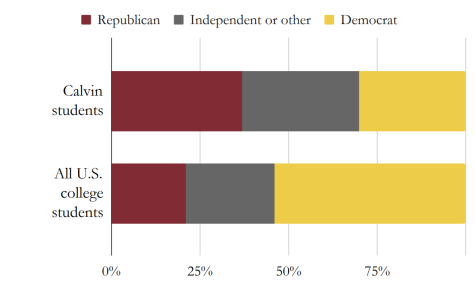
The majority of respondents said they believe Calvin’s community is diverse in thought and opinion. About 40% said they see Calvin as an institution as moderately liberal. Another 27% said they see Calvin as centrist or other, and yet another 24% said they see Calvin as moderately conservative. Less than 10% said they see Calvin as either strongly liberal or strongly conservative.
Republican students were much more likely to see Calvin as liberal (65% of them did), and Democrat students were slightly more likely to see Calvin as conservative (38% of them did).
Most students across parties see their professors as centrist or moderately liberal.
Disagreement and consensus
There is significant disagreement in the student body about how best Calvin can handle LGBTQ+ issues: 28% of students think Calvin should hold more strongly to a “traditional view of marriage and gender,” 16% said they didn’t think Calvin should change its current messaging and programming on this and 34% said they think Calvin should be “more affirming to the LGBTQ+ community.” About 21% said they did not have a strong opinion.
On this question, there were stark differences across political affiliations. Some 60% of Republican students want Calvin to hold more strongly to traditional views of marriage and gender, while 78% of Democratic students want Calvin to be more affirming.
”If you look at the raw numbers, affirming tends to be the clear winner,” Perumal said. However, administrators have pointed out to Perumal that those who prefer the status quo and those who would prefer Calvin hold more to traditional views, when combined, actually constitute the majority.
According to the survey, about 11% of students identify as LGBTQ+. This is higher than the U.S. national rate of LGBTQ+ identification, which Gallup estimates to be about 7.1%, but lower than the national estimate for people of Generation Z, which Gallup puts at about 21%.
“What [the survey data] goes to show is that Calvin should have dialogue about this,” Perumal said. “It would be unfair to edge affirming students out of the conversation. It would also be unfair to edge traditional students out of the conversation.”
Perumal told Chimes he expects LGBTQ+ issues to continue to be controversial at Calvin. “Whatever happens,” he said, “There will be an outcry; it just depends where the outcry will come from.”
Student Senate conducted several focus groups with progressive and conservative students. Both groups, Perumal reported, said they want more transparent communication from administration and healthier political dialogue on campus. Both groups feel discriminated against — conservative students by faculty and fellow students, and progressive students by administration, according to the senators’ presentation to Faculty Senate.
“Calvin students deserve better and more consistent communication,” Perumal said. “Students want to know honestly what decisions are, and what the impact of those decisions will be, and if Calvin has a master plan or a strategic goal, that should be communicated better to the student body.”




